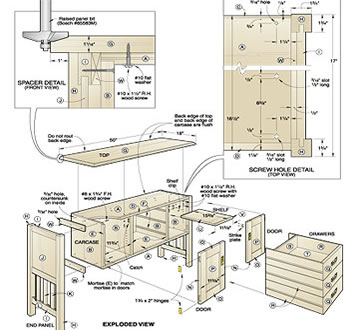
Best selling wood projects
I have a single board of sassafras that I want to use for the back and sides. This means that it will need to be ripped across its width to create a bookmatched pair for the back, and another pair for the sides.
So - four pieces needed.
Ripping veneer sized sheets on a bandsaw takes a little care.

I have designed a shaped pushstick that also holds the timber against the fence. This is vital for the last few inches of the cut, to protect ones fingers.
Normally I would dress the new side surface before cutting, but I had so little spare timber to work with, that I widened the cut just a little more and crossed my fingers.
For the last cut, I reversed the board and used the other dressed side against the fence.

Here are the first two straight off the saw.
This was very, very slow work - one millimetre at a time, but I was pleased with the result.
Plenty of extra work ahead to remove the saw marks and bring down to finished thickness.

OK - preliminary smoothing has given me enough timber to choose from. The thought occurred to me that there might be enough for a sassafras soundboard as well. Ill check that out next time.
Laminating The Neck
While the bandsaw is still humming, Ill cut the laminations for the neck, and get those glued up and put aside while I address the next stage of the body.

Here, I have drawn a rough outline of the neck on the side in chalk. A piece of rosewood separates the other two pieces of the neck and these will be glue-laminated together.

The rosewood needed straightening. My good old Stanley number 7 jointer made short work of that. It has a Sargent blade - a little bit thicker than the equivalent Stanley, and excellent steel.

This is a neck blank freshly glued. I use old scrap melamine for cauls here, as the plastic surface resists the glue very well. The neck blank looks too wide at this stage because it is the width of the head. The headstock is integral to the neck, and not scarf jointed onto it as is sometimes the case. The whole neck will be shaped when it dries.
The fretboard will glue to the top and cover the laminations, but they will be visible from the back. I intend to make more than one ukulele, so I have glued up a few laminated necks. Quicker to do as a batch lot.
Things are going to slow down a bit now as I have to build a mould and work out a method of bending the sides as well.
It has been fun so far ..............
Best selling wood projects

0 komentar:
Posting Komentar